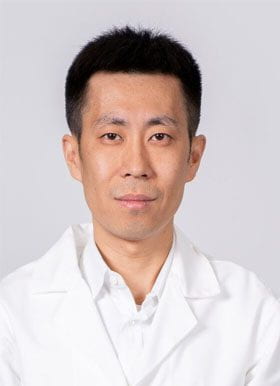
Jie Shen, PhD
Assistant Professor
- Phone: 314-747-2567
- Fax: Institute of Health | 11th floor
- Email: shen.j@nospam.wustl.edu
My current interests span aspects of bone and cartilage research, and are mainly focused on injury, repair, and regeneration of musculoskeletal tissues with the goal to understand the progenitor cell population, signals, and role of inflammation on tissue injury and regeneration at the cellular and molecular level. One of my major focuses is to clarify the epigenetic regulation of bone regeneration in inflammatory diseases. In the United States, approximately 1.6 million bone fractures encounter prolonged healing or non-union each year, among which, the major population bearing with these clinical complications are patients with inflammatory conditions, e.g, elder patients, smoking, diabetic or rheumatoid arthritis (RA) patients. Studies from patients and rodents extensively documented that chronic systemic inflammation activates canonical NF-B (IKK2) pathway resulting with elevated expression of IL-1, TNF and other cytokines, which impair the fracture repair process by negatively affecting MPC differentiation, chondrocyte maturation and angiogenesis. Recent epigenome studies from fracture patients revealed differential methylation loci associated with stem cell proliferation and differentiation in human mesenchymal stem cells, suggesting that DNA methylation is involved in fracture repair process. In this regard, we propose to utilize state-of-the-art methodologies to probe the interplay among NF-B, Dnmt3b and Rbpj (e.g. conditional Cre/LoxP mutant transgenic mouse models, murine surgical models of bone fracture) and to couple these with in vitro primary cell culture and next-generation sequencing methodology to understand the contribution of epigenetic regulators to the skeletal fracture repair and bone regeneration under inflammatory conditions. This innovative work will provide new mechanistic insights toward understanding the role of inflammation (NF-B/IKK2), DNA methylation (Dnmt3b) and Rbpj as the downstream target during fracture repair. We expect to identify new targets for future development of effective strategies to treat delayed fracture union and non-union.
In addition to skeletal regeneration, the other major focus of my laboratory is to delineate the effect of inflammation on skeletal degenerative disease, such as Osteoarthritis (OA).
